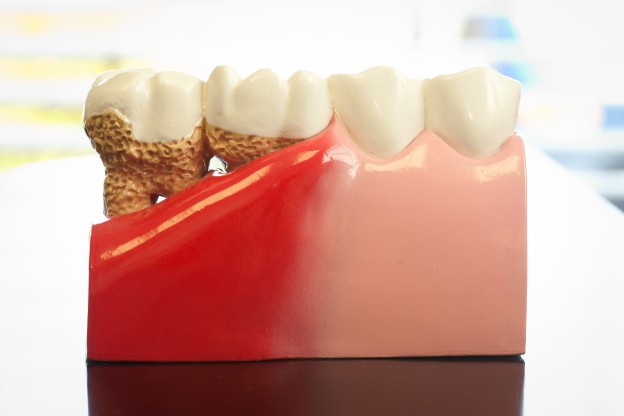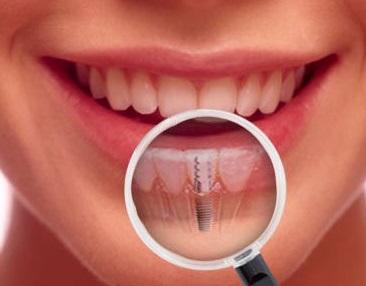Did you know that approximately half of the American adult population has periodontal or gum disease? Did you also know that over the age of 65, the prevalence of this infection increases to 75%? The CDC recently published the largest study to date and the results were compelling. Furthermore, the warning signs can be easy to recognize! Further indepth information can be found at https://www.cdc.gov/oralhealth/periodontal_disease/index.htm
Unending literature, websites, and blogs such as this one are full of information on gum disease, its effects on the oral foundation, links to systemic health as well as information for treating this all-too-common infection. However, there are easily observed warning signs that almost anyone can spot if they have any or all of them. And should you have any one or all three of these warnings, seeing a periodontist can help you get diagnosed as to how pronounced your condition may be.
What Are the Top 3 Warning Signs of Periodontal Infection?
Bleeding:
The truth is, bleeding gums are not normal! Many have come to expect bleeding gums as a regular part of life, but if your scalp bled every time you washed your hair or your cuticles bled while handwashing, you would probably want to get it checked. Generally speaking, healthy gums do not bleed. Gums that bleed are also swollen, red, and tender to touch. If your gums bleed when you brush your teeth or floss, a likely cause is inadequate plaque removal. The presence of blood from your gums can indicate you have either gingivitis, an early form of periodontal disease, or can be a sign of a moderate to severe stage of infection. An expert diagnosis from a periodontist can be very helpful in letting you know at what stage your gum disease has progressed.
Persistent Bad Breath:
If you are finding you constantly have bad breath, then periodontal disease could be the cause. Halitosis (this medical term was coined by Listerine in 1921) is more widespread than you think. And although bad breath is better than no breath, it is often a sign of oral infection. When the bacteria gets trapped inside your gums, the smell gets trapped in your mouth. These periodontal bacteria are anaerobic, sulfur-producing germs which cause a very distinct odor, similar to the noticeable odor of a sinus infection. Another related symptom to bad breath is a bad taste in your mouth. Often people report having both concerns together. There can be diet or medically related reasons for a distinct mouth odor, however, the chances are greater it is from periodontal infection as roughly half of the adult population has some form of this disease.
Loose or Drifting Teeth:
As deep pockets develop from gum infection, space can grow between your teeth and gums. Without the gums holding them tightly, they become loose. While you may not be able to see or recognize pockets developing, you will definitely notice loose teeth. As gum disease advances, the bone that surrounds the teeth is also destroyed and lost. Naturally, the more bone loss, the looser your teeth can get. And not only can teeth loosen up, they may drift or spread into a different position such as flaring out or you may notice space between your teeth when none existed before. Teeth that have tenderness when chewing or teeth that hurt can be a related sign to loose teeth as well. A periodontist who specializes in the supporting jawbone around teeth can take diagnostic x-rays to visualize the amount of bone loss from gum infection and can help with expert recommendations in stopping the bone loss, thus the looseness or shifting.
As you can see, these are 3 warning signs that are very easy to recognize. Should you have any one of these or all three, seeing a periodontist would be highly beneficial in that this specialty group of dentists focuses and treats gum disease and bone loss. Because periodontal infection is now linked to many systemic health concerns, treating gum disease may not just save your teeth but improve your overall level of health! For more information, please visit https://mygumdoc.wpenginepowered.com



 Top 5 Reasons For Dental Implants
Top 5 Reasons For Dental Implants